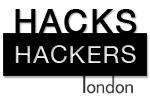“A manifesto for transparent digital journalism” at Hacks/Hackers London

Last week I posted my notes from one of the talks at the most recent Hacks/Hackers London meet-ups, which gave a behind the scenes peek at the design process of Eureka, The Times’ science magazine app for iPad. The other talk on the night was from Martin Moore and Ben Bradshaw. They were representing the Media Standards Trust, and delivering “A manifesto for transparent digital journalism”.
Their ten points can now be found on a wiki where they are open for debate. I thought they could broadly be classed into three groups:
- Changes to the mark-up of news stories that could be achieved by changes to content management systems.
- Changes to the way news stories are published that rely on changes of behaviour by organisations.
- Changes to the way news stories are published that rely on changes of behaviour by journalists, reporters, editors and sub-editors.
The latter was epitomised by the phrase: “the world will not end if you link to an external source”. Echoing Ben Goldacre’s “If you don’t link to primary sources you are dead to me” rallying cry, the Media Standards Trust would like to see a much better effort from news organisations on linking out. Martin in particular seemed to think news organisations had got worse at this in last couple of years, using partner services to help generate internal links, but failing to join in the wider linked economy. I’ve written before about 5 ways that The Guardian puts external links onto our website, and also about the way we link internally to our keyword topic pages.
Regarding changes to CMS output, there were several ideas around more clearly marking up the actual content on a page. Ben said that typically only a third of the page delivered to the end user is actually the story. He rest is advertising, UGC, navigation, and, frankly on most news websites, clutter. The HTML5 <article>, <section> and <aside> tags should help with this if widely adopted.
Other mark-up that Martin and Ben said would be useful would be machine-readable bylines, and machine-readable datestamps, including when revisions had been made to a story.
Martin thought there were clear business cases for proper accreditation of journalists and news organisations, and accurate time-stamping of publication to demonstrate to Google and others who had published a story first. The pair also called for some common sense website hygiene - permanent URLs for each story without session IDs, and avoiding splitting articles across several pages.
The third group of suggestions is aimed at convincing news organisations that if they want “friction-free syndication for the 21st Century” they need to adopt some more machine-friendly activities, like making licenses for re-use easier to obtain automatically. Martin suggested that a Spotify model for news, where readers can mix’n’match sources and follow the stories that interest them from a range of angles, could be enabled by easier licensing and better mark-up.
There were a couple of dissenting voices in the audience who suggested that the whole package seemed idealistic. I have to disagree. Quite a few of the suggestions could be implemented really easily if as an industry we could only get behind one standard like hNews or a particular flavour of microformats. That would force any CMS vendor that wanted to be a significant player in the news market to support it.
I pointed to a couple of articles in my linklog recently - “The ultimate 20 usability tips for your website” and “10 excellent SEO tips that will improve your web design” - which I said could basically be described as “do your website properly”. To be honest, aside from the idea of a principles statement and machine-readable reuse licences, there isn’t a great deal revolutionary in the transparent digital journalism manifesto beyond an appeal of “news organisations - do your websites properly!”. It seems a shame that we are in 2011 and still having to discuss such basics of web publishing.
Next...
The next Hacks/Hackers London event is yet to be announced, but they are usually every month. They are well worth attending if you have an interest in the interaction between journalism and technology, especially, I’d say, if you are a student journalist. You get to see talks that you would normally have to pay a hefty fee to see at a conference, and they are usually candid case studies about the reality of working on digital news products. Plus you get the opportunity to network with existing professionals in the field - and there is beer. What more could you want?
“Hacks/Hackers London: Notes from the talks” brings together notes from 16 talks, including those from Martin Rosenbaum, Stephen Grey, Alastair Dant, Scott Byrne-Fraser and Wendy Grossman. It looks at topics of interest to journalists and programers alike, including freedom of information, processing big data sets to tell stories, social activism hack camps, the future of interactive technologies, and using social media to cover your tracks - or uncover those of somebody else.
“Hacks/Hackers London: Notes from the talks” for Kindle is £1.14.
